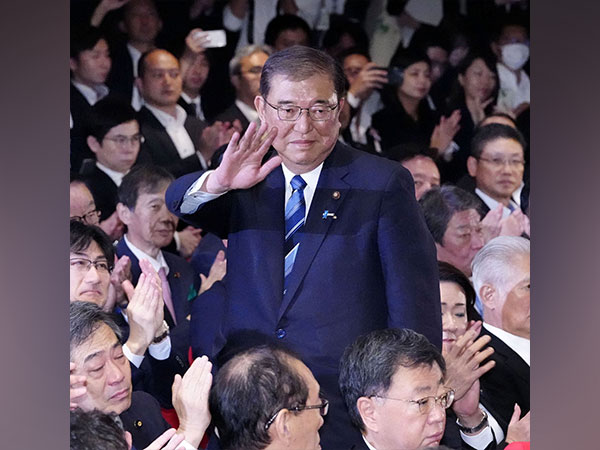Shigeru Ishiba's Bold Vision: An Asian NATO for Future Security
Shigeru Ishiba, Japan's soon-to-be prime minister, proposes transforming the U.S.-Japan alliance with an 'Asian NATO' and stationing Japanese troops on U.S. soil. His controversial plans aim to counter China's military rise and include revising Japan's military strategy and oversight of U.S. bases. U.S. officials have dismissed the idea as premature.

Shigeru Ishiba, poised to become Japan's next prime minister, could strain U.S.-Japan relations with his vision to establish an 'Asian NATO' and deploy Japanese troops on U.S. soil.
Ishiba, who won leadership of the ruling Liberal Democratic Party, submitted his proposal to the Hudson Institute, advocating for enhanced deterrence against China through a collective defense system similar to NATO. 'The absence of a collective self-defense system like NATO in Asia means that wars are likely to break out because there is no obligation for mutual defense,' Ishiba wrote, highlighting Japan's concerns over China's military activities.
However, U.S. officials, including Daniel Kritenbrink, have rejected the proposal as hasty. Joseph Kraft, an analyst in Tokyo, noted Ishiba's lack of national security diplomacy experience despite his military expertise. Ishiba, undeterred, reiterated the need for an Asian treaty organization in light of America's diminishing might.
If implemented, Ishiba's reforms could further complicate U.S.-Japan dynamics amid efforts to deepen defense ties with South Korea, Australia, and European countries against China's growing influence. His idea of sharing control of U.S. nuclear weapons as a regional deterrent adds to the controversy. Critics remain skeptical of such drastic changes to Japan's strategic alliance.
(With inputs from agencies.)









